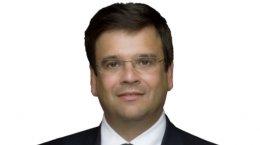It might have been the Alpine air, but some of the chief executives and business people in Davos came to the end of the week feeling slightly better than when they had arrived. There was still unease about the state of the eurozone and the global economy’s weakness, but their worst fears had not been reinforced.
Europeans took heart from the guardedly upbeat mood among US businesses about domestic growth. Meanwhile, Americans were partly reassured after being told by European policymakers that the most likely outcome for the eurozone was muddling through, rather than collapse.
The World Economic Forum in Davos also provided exposure to professionals from emerging market growth economies, with both India and Brazil sending large contingents. Although nervousness rather than bullishness about economic recovery was the prevailing mood, there was little despair. What Shumeet Banerji, chief executive of Booz and Co, the management consultancy, described as “Bleak house, year four†felt a little less bleak.
The exception was the banking industry, which still faces deep troubles and a raft of regulations and capital standards. Some bankers have become heartily sick of being criticised, a mood that sometimes erupted in anger. When Lord Mandelson, a former UK minister, blamed the financial crisis on banks at one meeting, some in the audience hissed.
Business leaders also talked of nagging fears of an unpredictable new shock from the eurozone, the Middle East or China. A survey by PwC, the accountancy firm, found that business confidence had fallen sharply over the past year. “Many companies are nervous,†said Dennis Nally, PwC chairman.
Chief executives and policymakers were worried by the jobs crisis, particularly among young people. There were several discussions on how, if possible, to make advanced economies generate more jobs at a time of anaemic growth – and income disparity and social inequality produced by technological change and globalisation.
Many companies stressed their own operations were continuing to perform well – particularly when they have links to the boom in emerging markets. “When I went into sessions on Europe I came out feeling depressed,†said the head of one US bank. “But if you listen to Brazilians or Indians, you feel completely different.â€
John Nelson, chairman of Lloyd’s, the London insurance market, said: “The big question is how on earth the eurozone crisis gets solved, because if it does not happen we will have a continued lack of liquidity in the banking system which will hold back business. People are also concerned about protectionism and fiscal and regulatory changes that could hold things back.â€
This prompted a renewed push on trade. The US Chamber of Commerce tried to use the forum to table a transatlantic trade pact that would reduce tariffs on goods. “People know we need to create growth, so all of a sudden there seems to be a groundswell behind this,†Tom Donohue, president of the chamber, said.
At the same time there was a wider recognition that the traditional Davos agenda focusing on the benefits of globalisation and trade had a social cost. While it has been good for highly educated and mobile executives, many of whom throng to the forum, the west’s unskilled workers have suffered.
“The flip side of people enjoying cheaper goods at home is loss of jobs at home. The flipside of technology and productivity is tremendous job churn and insecurity,†Lord Mandelson said at a debate on the future of work, organised by McKinsey, the consultancy. “We have to take the rap for that.â€
Multinational companies said they faced pressure from investors and their employees to demonstrate a social purpose, rather than just maximising profits. “We can’t treat [corporate social responsibility] as separated from everything else – it is now core to what we do,†said Keith Weed, chief marketing officer of Unilever.
Not everyone agreed with a shift in approach. “Generally, companies are poor instruments of social policy and should stay away from that,†said Mr Banerji. “Good companies raise capital from markets, allocate it to projects and make profits along the way. If they did that well, there would be no problems.â€
The question is whether the economies of western countries will be stable and vibrant enough to encourage companies to do so – and to create jobs.
George Soros, the philanthropist and former hedge fund manager, was gloomy about Europe’s chances, predicting a “vicious cycle†of deflation unless Germany acted to stimulate the eurozone.
There were plenty of concerns in Davos about the economic outlook, yet, for many of those in business, things could have been worse. The times are difficult, but not entirely bleak.
More News From Financial Times





